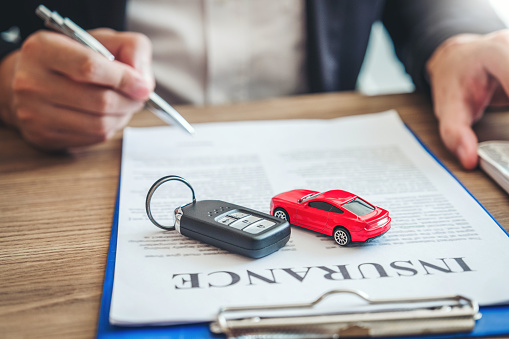Being involved in a car accident can be a daunting and worrisome experience. Even if you don’t sustain any injuries, the experience alone can be traumatic enough to keep you from getting back onto the road for years to come. However, it’s important to look at the situation of if you do experience injuries as a result of your accident.
After all, motor vehicle injury costs were estimated at over $470 billion in recent years, going to show the importance of keeping yourself protected with personal injury protection insurance. There are a number of different types of car insurance, though, and many drivers often confuse collision coverage with PIP insurance, despite them protecting against different things.
What is Personal Injury Protection Insurance?
To those unfamiliar with the term, personal injury protection (PIP) insurance for drivers is a specialty form of insurance that offers compensation for medical expenses and lost wages to you and passengers in your vehicle, regardless of who was at fault during an accident. This form of insurance is not mandatory in all states, but it is mandatory in some which means checking the regulations based on where you live is important.
Types of Damage PIP Protects Against
Most commonly, when looking at what personal injury protection insurance covers the following items are included:
- Medical bills resulting from the accident for you and anyone included on your policy
- Lost wages resulting from being unable to work following an accident
- Services related to household care that can no longer be performed for children
- Disability or rehabilitation costs
- Death benefits if there is a tragic fatality
It’s worth noting that damage to your vehicle and theft are not covered by personal injury protection, with this form of insurance only covering harm that occurred to your body.
What is Collision Coverage Insurance?
On the other side of things, collision coverage insurance is another form of car insurance that helps a person pay for repairs or replacements on their vehicle following an accident with an object or other vehicle. Collision coverage only damage to your vehicle and cannot be used to pay for repairs on another vehicle if you are at fault for the accident. More often than not, collision coverage is an option form of car insurance not required by most states.
Types of Damage Collision Coverage Protects Against
The most common forms of damage that collision coverage can be used to protect against include:
- Damage resulting from an accident with another car out on the road
- Colliding with an object such as a barricade, tree, or power line
- Single-car accidents such as a rollover
- General vehicle damage resulting from some sort of collision
As a note, collision coverage will not cover damage associated with natural disasters, such as hurricanes or tornadoes, and will not apply to situations where bad weather was the cause of damage such as hail. Additionally, collision coverage does not cover medical bills at all, whether they be yours or someone else’s.
Other Common Forms of Car Insurance
The two types of car insurance above are among the most common types, but there are a number of other types that most drivers on the road will have:
1) Liability Coverage: This form of car insurance is the version that is mandatory in almost all states, and is used to pay for bodily damage or vehicular damage to another person in the event of an accident that is your fault.
2) Uninsured Motorist Coverage: If you are hit by a driver who does not have car insurance, this form of insurance will potentially help pay for some injuries you sustained or damage that your vehicle may have sustained from the wreck.
3) Comprehensive Vehicle Coverage: Theft, bad weather, and natural disasters are all included under this form of car insurance, which will offer compensation for repairs or replacements resulting from events beyond your control, such as the above.
4) Medical Payments Coverage: This form of car insurance is almost exactly the same as personal injury protection insurance but is most often offered in states where PIP insurance is not offered.
Keep Yourself Protected Out on the Road
As a driver, you can only control your own actions out on the road, not the actions of other drivers. This can lead to accidents that were beyond your control and that resulted in injuries that require immediate attention. Ensure that you have both PIP and collision coverage insurance so that you don’t need to worry about costs while you heal.

